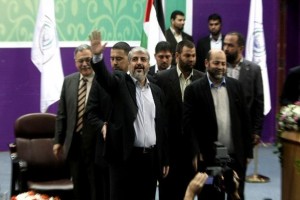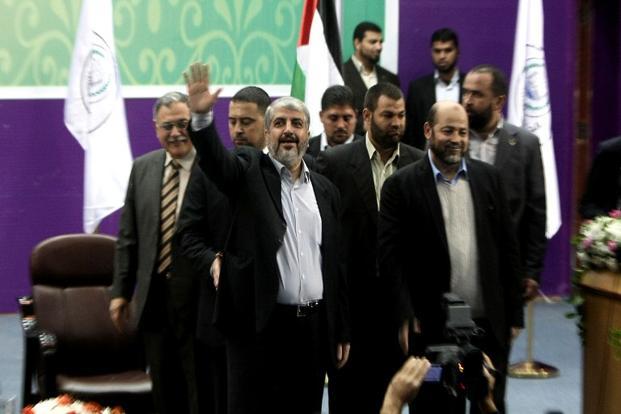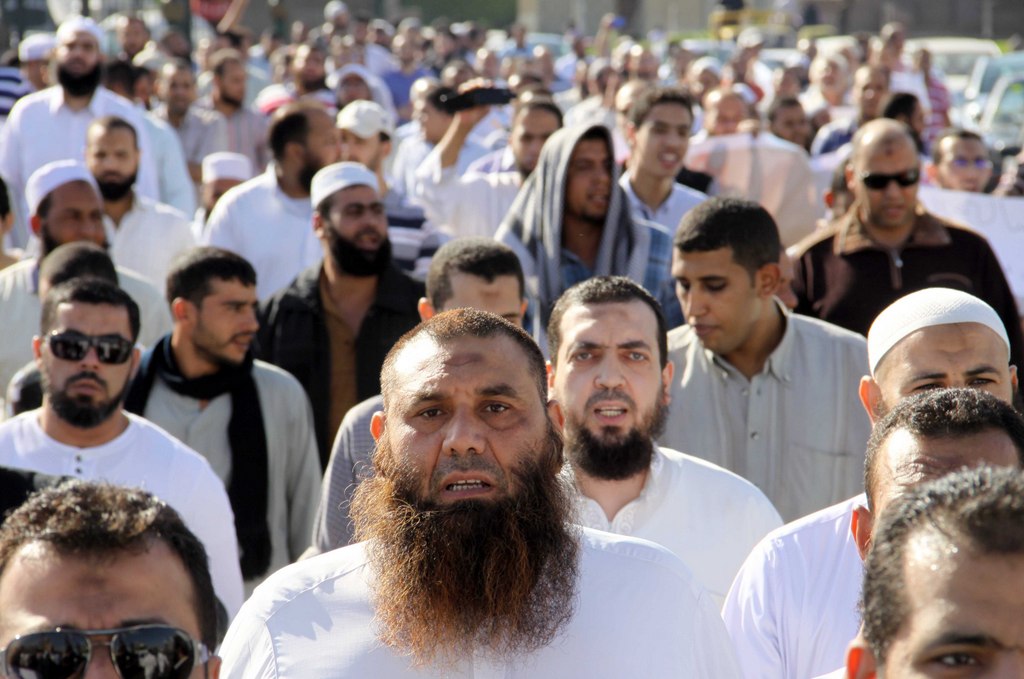
(AFP File Photo/ Mahmud Hams)
A Cairo Court for Urgent Matters’ decision Saturday designating Hamas as a “terrorist organisation” has stunned and angered Hamas officials, according to statements from various Hamas spokespersons.
The decision followed a submission from Egyptian lawyers Samir Sabry and Ashraf Said Ibrahim against Hamas. The two lawyers held that the group is responsible for a number of killings of Egyptian security forces personnel. The decision came despite Egypt having hosted talks between the movement and Israel in Cairo as recently as August, brokering a ceasefire to last summer’s heavy conflict.
Sami Abu Zuhri, a Hamas spokesperson, said the “shocking and dangerous” ruling “targets the Palestinian people and resistance forces. It reverses the equation, making the occupation a friend and the Palestinian people an enemy”.
Abu Zuhri added the ruling “is a great shame that taints the reputation of Egypt and is desperate attempt to export Egypt’s internal crises, but will not have any influence on the Hamas movement, which is respected by all the sons and leaders of the nation”. He called on Arab parties to “take urgent action to remedy this collapse in Egyptian support for the Palestinian cause”.
However, Abu Zuhri maintained that Israel remains the “real enemy of the peoples of the region”.
Hamas sources stated that rallies took place in the Strip to denounce the ruling, with one leading northern Gaza Strip official Mushir Al-Masri saying Hamas will “remain victorious”. Al-Masri called out the decision as a “judicial farce” and a “disgrace…but it does not reflect the will of the great Egyptian people”.
In March 2014, an Egyptian court banned the activities of Hamas inside Egypt, and confiscated the group’s offices. The Cairo Court of Urgent Matters also designated the Al-Qassam Brigades, Hamas’s military wing, as a “terrorist group” on 31 January. The group was accused of “participating in terrorist operations” and recent violence in North Sinai.
Following attacks on security personnel on 24 October and 29 January, the two largest in Sinai since former President Mohamed Morsi’s ouster, President Abdel Fattah Al-Sisi referred in two speeches following each attack, to the involvement of foreign elements in the Peninsula’s insurgency.
Egypt has accused Hamas of meddling in its internal affairs and supporting Islamist insurgents in Sinai. However, Hamas has denied the accusations on several occasions. Key figure Mahmoud Al-Zahar previously told Daily News Egypt there are no headquarters or individuals belonging to the group in Egypt, and there is no proof of Hamas interference in Egyptian affairs.
In comments to state-run news agency MENA on the sidelines of the Supreme Council for Islamic Affairs conference Saturday, the mufti of Jerusalem Sheikh Mohamed Hussein praised Egypt’s government and leadership in support of the Palestinian people and cause, and in defence of Islamic holy places in Jerusalem. He echoed previous comments by President Abdel Fattah Al-Sisi that the Palestinian issue is the core of the conflict in the region, and that the key to defeating extremism is by undermining an interpretation of Islam that justifies terrorist acts, and the renewal of religious discourse.
Hamas representatives came to Cairo in August during talks aimed at securing a ceasefire between Palestinian factions in the Gaza Strip and Israel. The conflict had left approximately 2,000 people dead. 1,417 of those killed in Gaza were civilians.
Relations between Egypt and Hamas have deteriorated since Muslim Brotherhood president Mohamed Morsi’s ouster in June 2013. Morsi is currently standing trial on charges of espionage for Hamas. He has also been accused of escaping from Wadi El-Natrun Prison on 28 January 2011, during the first days of the 25 January Revolution, with the help of foreigners, including members of Hamas.




